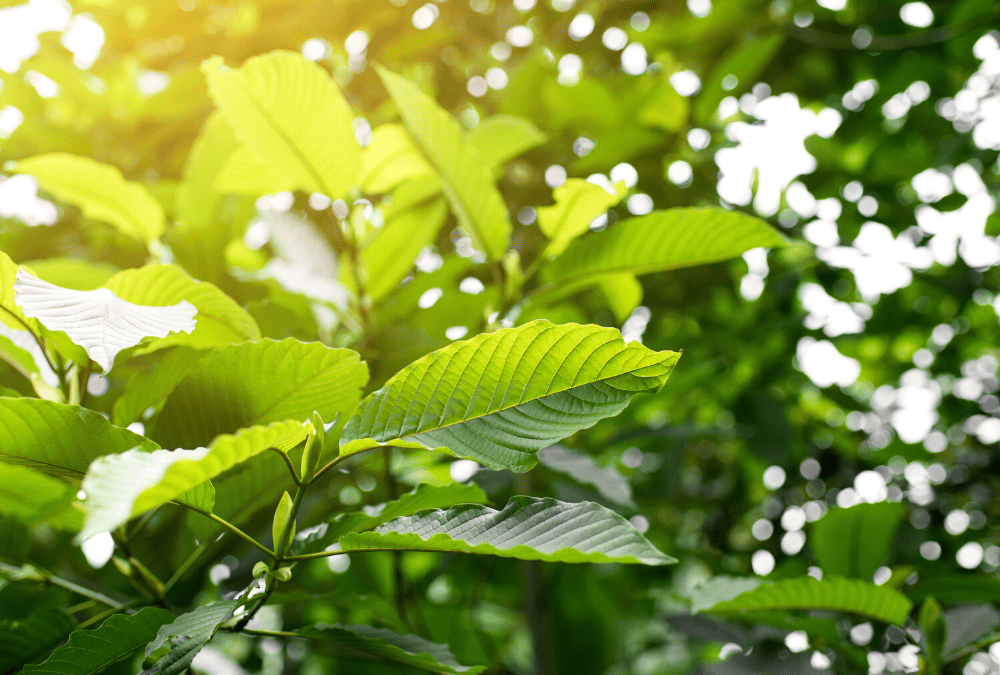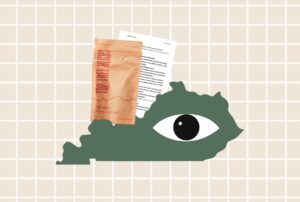Florida Kratom Policy
Here at Top Tree, we often get questions regarding the legality of kratom in a certain state. In response, we’ve dedicated a series of posts aimed at answering some of these recurring state policy questions. Consider yourself officially welcomed to the second installment of our “Is Kratom legal in?” series of posts! Check out our precious article “Is Kratom Legal in Colorado?” here. But now, is “Kratom legal in Florida?”
The legality of kratom can be a complex topic, depending on the state or even location in question.
It can be an even more confusing topic trying to figure out who is responsible for regulating it. Normally, that would fall under the jurisdiction of the FDA. Given their long standing disdain for kratom, they’ve left the decision to local and state authorities.
Much like cannabis policy here In the US, the answer to our question can be a bit confusing. Some states/locations have laws regarding consumption, some have regulatory procedure policy, while others have banned kratom completely.
For example, Kratom is banned for sale, possession, and consumption in Alabama, Arkansas, Indiana, Vermont, and Wisconsin.
The short answer for our impatient readers wondering is kratom legal in Florida? About 99% yes. Yet you may want to stick around for our more detailed answer, especially if you live in Sarasota County.
The Exception: Sarasota County
We explained that kratom is legal in about 99% of Florida. Well, welcome to the other 1% (about 1.5% if we’re getting technical).
In January of 2014, Sarasota County passed a county ordinance making it illegal to possess kratom in any form. The county misguidedly classified kratom as a “designer drug” under Article XIII of the Sarasota County Code of Ordinance.
When purchased from a reputable source, kratom is an all-natural, unadulterated product. There are no harmful synthetic additives or ingredients of any kind.
This classification of kratom erroneously compares kratom to the likes of designer drugs like synthetic cannabinoids (also known as K2 or spice) or bath salts.
Still, possession of kratom in Sarasota County is punishable by up to 60 days in jail, and/or a $500 fine. Appearance in court is also mandatory. So no quick mail in resolution for offenders in the county.
Kratom Regulation in Florida
Efforts to either ban or regulate kratom in Florida have seen little success, though not through lack of effort.
Most recently in 2019, St. Johns County Board of Commissioners considered banning kratom sales within the county. After 19 individuals testified for their right to use kratom before the board, the commission ultimately decided to defer to the state for any regulation of the plant. Sarasota remains the only county in Florida to successfully ban the sale and possession of kratom in any form.
In lieu of banning kratom altogether, the percentage in favor of regulating kratom sales and possession in Florida is on the rise. Though little success has been made in the realm of regulation, several bills have been introduced to create the Florida Kratom Consumer Protection Act (KCPA).
Florida Kratom Consumer Protection Act
The Florida Kratom Consumer Protection Act refers to a regulatory framework for the production and sale of kratom.
However, this concept is not new. States like Arizona, Georgia, Oklahoma, Nevada, and Utah have already passed their own respective KCPA bills, all of which outline a similar regulatory framework.
These respective KCPA bills aim to accomplish a similar goal in each state. Regulate the quality and safe consummation of kratom; as well as protect the individual rights of US citizens to process and consume kratom responsibly.
Some states like Colorado and Missouri (and many more), have similar active bills being deliberated upon as we speak. While there have been several bills proposed in order to create the Florida KCPA, we’ll focus on the most recent.
Senate Bill 1076
Senate Bill 1076 is the most recent attempt to establish the Florida KCPA. Proposed by Senator Joe Gruters on 11/30/2022, the bill aimed to establish guidelines for the processing and sale of kratom.
Under Section 1 of Section 501. 9745, the bill details several significant restrictions regarding the processing of kratom. (Please note some sections of the bill are paraphrased and not intended as an official legal guideline)
According to the bill, a processor may not sell, prepare, distribute or expose for sale a kratom product that:
- Is adulterated with a non-kratom substance at affects the quality or strength of kratom to a dangerous degree
- Contains a poisonous or otherwise harmful non-kratom ingredient
- Has a level of 7-hydroxymitragynine in the alkaloid product exceeding greater than 2% of the total product
- Contains a synthetic alkaloid, including, but not limited to synthetic 7-hydroxymitragynine
- Does not include proper packaging including, but not limited to, a suggested serving size
In addition, in the same subsection (3), Senate Bill 1076 outlines who is eligible to be sold kratom. A processor may not “sell, distribute, or expose for sale kratom to an individual under 21 years of age.”
Fate of Senate Bill 1076
Ultimately, Senate Bill 1076 failed to make its mark, dying in Appropriations on 3/14/2021, despite being favored 10-0 by the Appropriations Subcommittee.
Although the bill ultimately failed to come to fruition, this is the furthest that the Florida KCPA has made it in the Florida Senate. A promising sign for proponents of regulation.
A similar bill with virtually identical language was filed in the House just a month later. House Bill 1071, proposed by Alex Andrade, died in the Regulatory Reform Subcommittee on the same exact date as SB 1076.
HB 179 – Success in 2023
In June of 2023, Governor Ron DeSantis signed the Kratom Consumer Protection Act into law. The bill is very bare bones, and simply creates a minimum age limit for the sale of kratom products: 21+.
You can read the bill in its entirety here.
Why Regulate Kratom?
Why would proponents of kratom even care about regulation? Less restrictions = pumping out more product to a wider audience, right?
Wrong.
We here at Top Tree are obviously all about kratom, and believe it should be available to all eligible adults. The fact of the matter is, we care about regulation because we care about kratom.
Our mission here at Top Tree has always been to provide quality kratom leaf to our consumers. All of our kratom is lab tested, and 100% natural. Our kratom tea bags only include kratom leaf that is AKA cGMP certified. Other vendors may attempt to cut corners and offer subpar quality kratom that could be potentially dangerous; all in the name of profit.
Many vendors don’t recognize the need for product testing, and simply market whatever product they receive to their consumers as “safe” and “all-natural”.
While we recommend our kratom tea bags, we understand that consumers may want to explore other options. We recommend that you do extensive research on what it is you’re actually buying.
Kratom Quality and Safety
Mitragyna speciosa, also known as kratom, comes from Southeast Asia. This fact in and of itself can be at the root of a host of safety and quality concerns.
For starters, farms producing kratom in Southeast Asia may not be adhering to the same proper safety standards that are common in America.
Given that kratom is a natural substance, it is susceptible to mold and other harmful pathogens. Handling, storage, processing, and distribution all play a major role in the quality and safety of the kratom received.
As we stated earlier, some products shipped to another processor or distributor here in the US may not be safe. Some vendors blend the natural kratom with other potentially harmful synthetic or natural substances.
Others may cut corners, opting for cost-reducing measures that may affect the quality and safety of their product.
Take one such study conducted by Dr. Oliver Grundman in 2020. Grundman’s research analyzed kratom products purchased from local shops in the Chicago area.
Grundman and his colleague’s research discovered that some of the samples contained unsafe levels of heavy metals (lead and nickel) and microbes.
This is why bills such as the KCPA are especially important. These bills ensure the safety and regulation of kratom, from farm to consumer.
Without regulation, lab testing and quality control will be optional, leaving consumers vulnerable to the final product they’re consuming.
In Conclusion
Whew! That was a lot of information for such a short question wasn’t it? We thank you for sticking with us and urge our readers to always be curious and continue to educate themselves about kratom.
In conclusion, yes, kratom is in fact legal in every county in Florida with the exception of Sarasota. Efforts to pass the KCPA are underway. Until then, kratom consumers are vulnerable to unnecessary risks.
Do you want to help pass the KCPA in Florida? Check your state website for upcoming bills, contact a congressman/woman, every little bit helps!
For our Florida readers, you can reach out to Congressman Joseph Gruter’s office via his email- [email protected], or by phone- (850)-487-5023. You can reach current House Member Alexander Andrade via e-mail at: [email protected] , or via phone: (850)-717-5002.
Thanks for reading and as always, contact us if you have any questions or concerns regarding kratom or our products.
Cheers to better brewing!





